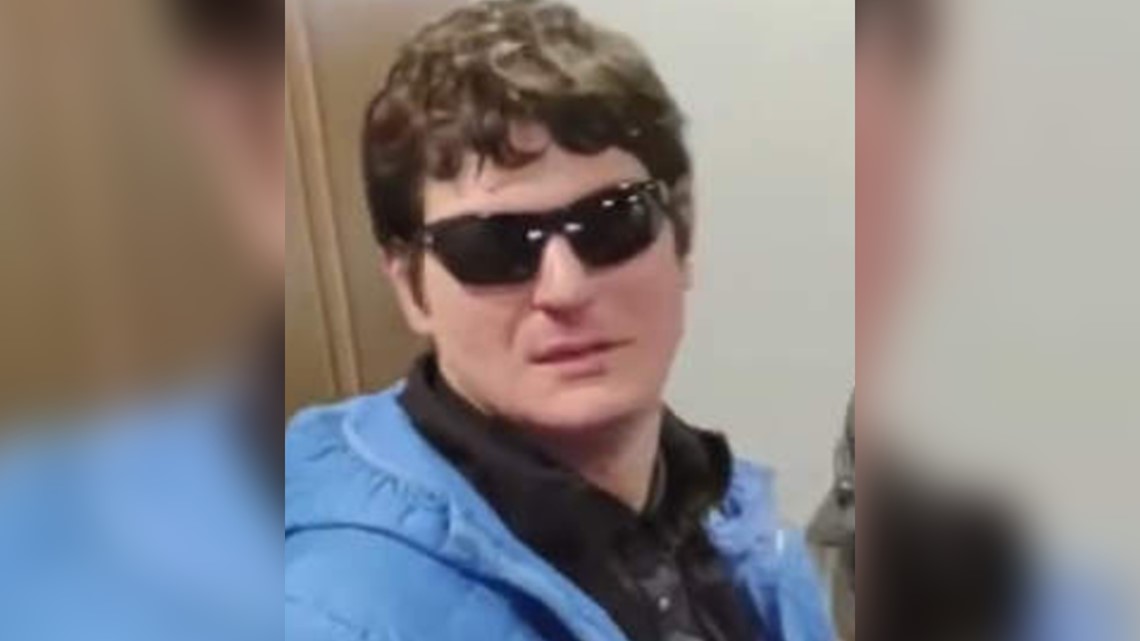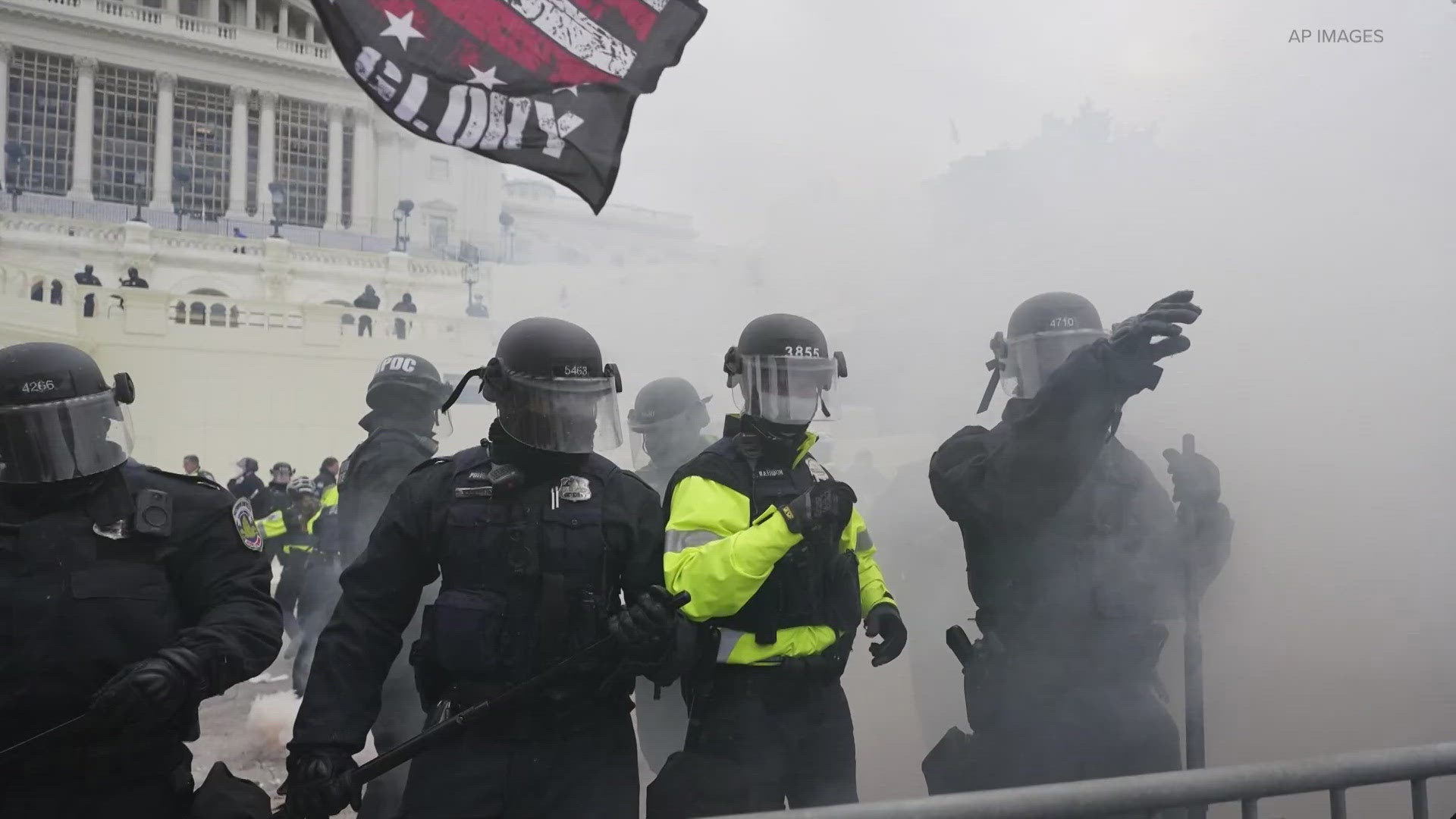WASHINGTON — Two former lawyers for a convicted Jan. 6 defendant who is now seeking a new trial say he was fixated on taking the stand in an attempt to tell jurors things they believed were irrelevant – and likely harmful – to his case.
Last March, a jury convicted Vitali GossJankowski of multiple felony and misdemeanor counts, including assaulting a police officer, for his role in the Capitol riot. GossJankowski, a 34-year-old former defensive lineman for Gallaudet University’s football team who was enrolled as a student at the school on Jan. 6, is currently awaiting sentencing in custody after having his bond revoked in response to intimidating and harassing messages he sent to law enforcement last year.
Shortly after his conviction, GossJankowski asked U.S. District Judge Paul Friedman to grant him a new trial. He argued, among other things, that his attorneys had failed to prepare him for the possibility of taking the stand and had then improperly dissuaded him from doing so when he indicated interest during the trial.
On Wednesday, GossJankowski’s former attorneys, assistant federal public defenders Edward Smock and Celia Goetzl, appeared before Friedman for an evidentiary hearing about how they prepared for his trial. GossJankowski waived his attorney-client privilege over relevant discussions with both attorneys to allow them to testify about his case.


Both Smock and Goetzl said they strongly believed, then and now, that GossJankowski was innocent and that video shown at trial proved he was attempting to aid, not assault, an officer. But both also said they expressed serious concerns and advised him against it when GossJankowski told them after the trial was already underway that he wanted to testify.
“His interest in testifying was not focused on issues that were in dispute in the case… but were instead related to issues that were peripheral and would not advance our arguments,” Smock, testified Wednesday.
Goetzl said both attorneys spoke to GossJankowski multiple times about his desire to testify and explained to him the risks of potentially damaging cross-examination. They both counseled him against it but said they would have done everything possible to prepare him to take the stand if that had been his decision. They acknowledged it was their advice to him not to do so, and said they believed he'd accepted that advice. Goetzl also said there was a concern jurors would not find portions of GossJankowski’s testimony credible – particularly if he said he did not know how to turn off a stun device he can be seen holding in videos.
“We felt like it would actively hurt his case,” Goetzl said.
Neither attorney specified what GossJankowski wanted to testify about, but the new attorney appointed by the court to represent him, Matthew Peed, did so in a previous hearing in October. According to Peed, GossJankowski claims he was “sexually frisked” during his arrest and was angry that his previous attorneys told him it wouldn’t come into his trial. Peed said GossJankowski’s anger over his alleged treatment during his arrest motivated the antisemitic, homophobic and racist epithets prosecutors said he sent to law enforcement and which ultimately resulted in the revocation of his pre-sentencing release last year.
On Wednesday, Peed focused his questions heavily on the decision not to at least do preliminary preparations to ready GossJankowski to testify should he decide to. Smock, a defense attorney with more than 20 years of experience, said after his meetings with GossJankowski he felt advising him to take the stand was not in his best interests – and that after their conversations, he believed GossJankowski agreed with that assessment. Both Smock and Goetzl said they believed the best course of action was to allow the video to speak for itself.
“In our view, the video was very strong evidence of his innocence,” Smock said. “I remain completely convinced of his innocence of that assault charge.”
Friedman also focused his questions on the defense preparations before trial – but appeared to take note when he elicited from Goetzl that GossJankowski had been a recalcitrant client.
Goetzl said even though they had met with GossJankowski repeatedly before trial to go over video and discuss questions that could hypothetically be asked of witnesses – including him – he showed little interest in meeting with them and had a short attention span when they were together. And, she said, he remained fixated on his claims about his arrest.
“Every meeting we had with Mr. GossJankowski he raised those issues instead of the issues that were at hand for trial,” she said.
GossJankowski will have a chance to testify himself at a second hearing next month. He will likely face questioning from prosecutors about why he told Friedman during the trial that he was willingly waiving his right to testify and why he didn’t raise the issue until a month after his conviction on multiple felony counts.
A sentencing date has not yet been set for GossJankowski. If Friedman does not grant him a new trial, he could potentially face a lengthy prison term – although he will likely benefit from a recent decision by the D.C. Circuit Court of Appeals throwing out two significant enhancements used in similar Jan. 6 cases.
Friedman said the parties would set a date for GossJankowski’s testimony after determining when ASL interpreters would be available.

